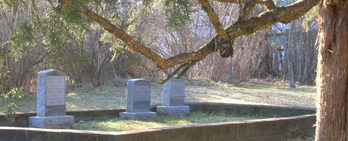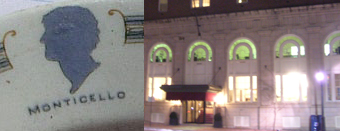Today the Ivy Creek Natural Area contains hiking trails, copious amounts of birds, and a learning center. In 1880, on this same site, Hugh Carr’s 80-acre farm, River View, contained crops, a milk cow, 4 swine, 10 poultry, and many other agricultural features. Although born into slavery around 1840, Hugh Carr worked hard after emancipation to save his earnings and invest in land in the Hydraulic Mills neighborhood (along the Rivanna). The Ivy Creek Foundation has conducted extensive research into the Life & Legacy of the Carr family. Many 19th and 20th Century features are visible today: the original farmhouse, a clapboard barn, historic road beds, and springhouses. Make sure you visit the ICNF site before you go so that you can enjoy the rich history of this farm.  During your visit, take a few moments to visit the Carr Family Cemetery. It contains an interesting array of granite and carved fieldstone gravemarkers.
During your visit, take a few moments to visit the Carr Family Cemetery. It contains an interesting array of granite and carved fieldstone gravemarkers.
Hugh Carr’s son-in-law, Conly Greer, contracted with several area businesses to haul away their trash. Many of these items, referred to by archaeologists as “artifacts” (it’s true, archaeologists study trash), are visible above-ground in trash middens. Below is a sherd with the profile of a famous Charlottesvillian which was the logo for the Old Monticello Hotel (located across from the courthouse).
